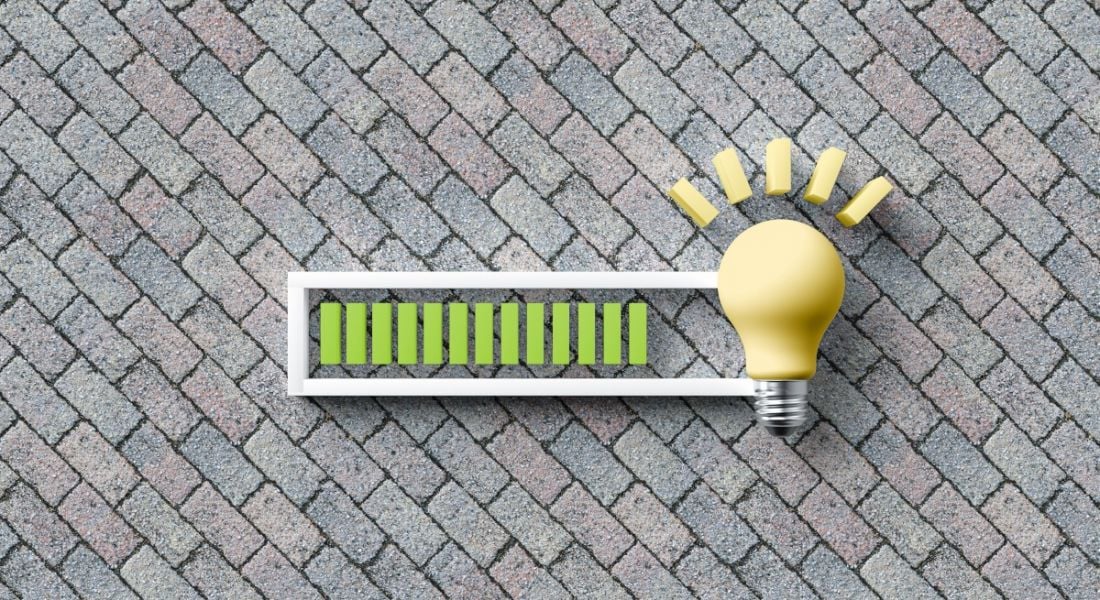Wondering how you can make your remote working routine a little greener? Here are some tips from the co-hosts of climate action podcast How to Eat an Elephant.
We’ve all been juggling different challenges in the past year. Adjusting to the newly dispersed workforce hasn’t been easy, so committing to being more sustainable while you work from home might seem like a stretch right now.
However, there are some small steps you can take. We already discussed creating a greener home office with this infographic from Use Space, which suggests investing in more sustainable devices and letting in more natural light.
But beyond your actual work setup, there are some other things you can do to further offset your carbon footprint. Last year, the University of Cambridge shared seven examples.
“While shutting down buildings and limiting travel and commuting could result in a reduction in the University’s impacts on the environment in some areas, it’s clear that home workers will have different environmental impacts, as well as opportunities for protecting (and enjoying) the environment,” it said.
Its advice ranges from the more obvious options, such as cutting down on your energy use and recycling more, to perhaps lesser-known impactful activities, such as gardening more or opting for ‘green tourism’.
More tips can be found in The Homeworker, which spoke to three sustainability experts about cultivating greener working-from-home environments. Kris Atkins, founder of Ocker Environmental, told the publication: “For the homeworker, it’s understanding what decisions have been moved over to you to make.
“Now we’re responsible for our energy bill, our waste and procurement while we work. It’s up to us individually, especially if self-employed, to try to buy locally and sustainably.”
How to be more sustainable while working from home
To learn more about being sustainable while working from home, we spoke to the co-hosts of How to Eat an Elephant, a new podcast on climate action.
Created by Emma Bertipaglia and Will Penn, the podcast will work to deconstruct elements of the climate crisis in a “digestible” way.
So what did Bertipaglia and Penn advise?
1. Eating locally and seasonally
One of the best things you can do for your carbon footprint, they said, is to buy local and seasonal produce at the supermarket. This will often require you to get creative, Penn said: “For example, I’ve had more Brussels sprouts this year than I think I’ve ever eaten in my life.”
Opting for ‘meatless Mondays’ or dedicating one or two days a week to plant-based meals can also make an impact. Bertipaglia said that you shouldn’t feel the pressure to go ‘cold turkey’, but that even baking your own bread or cookies is a solid way of cutting down on the environmental effects of processed and packaged foods.
Penn has also been composting during the pandemic. “It sounds boring but it’s actually really exciting,” he said, particularly when it comes to investing in the worms that help make it a “living ecosystem”.
If you’re keen to start growing your own vegetables, he added, February is the perfect month to buy some tomato seeds and nurture them indoors.
2. Moving away from big corporations
“One of the biggest tips we can give is to buy from local businesses,” Penn said. “So before hunting on Amazon, see if there are businesses around you that you can support.
“Through Amazon, your carbon footprint is way bigger than it would be buying locally.”
Penn has been particularly pleased to see his orders from local businesses getting delivered by cyclists and often having minimal packaging, a deviation from bigger companies where he believes the volume of waste can be “quite astounding”.
3. Being in nature
Bertipaglia and Penn believe that immersing ourselves in nature is crucial while we work from home. Penn spoke about the otter he recently saw in Dublin’s River Liffey, and the singing starling outside his window that he’s been listening to every day. “If I wasn’t working from home I wouldn’t necessarily appreciate that,” he said.
Bertipaglia added that now is a good time to address our ‘nature deficit disorder’ by changing “how and where we perceive nature in our everyday lives”.
Reacquainting ourselves with the nature on our doorstep can also help us better understand and appreciate the efforts to restore it, often referred to as ‘rewilding’, she said.
4. Getting educated
Finally, educating yourself on the climate crisis is one of the best ways to become more sustainable while working from home, they said.
Given that many of us have more time on our hands without daily commutes, Bertipaglia said she’s enjoyed getting the chance to watch more documentaries and read more books. “For me, some of the documentaries I have loved are Virunga, Before the Flood and My Octopus Teacher.”
Penn recommended two books. The first was The Almanac: A Seasonal Guide to 2021 by Lia Leendertz, which Penn described as a great resource on what to plant when and how to find seasonal produce at the supermarket. The second was Feral: Rewilding the Land, the Sea and Human Life by George Monbiot.
To hear more from Bertipaglia and Penn, listen to the first episode of How to Eat an Elephant here.




